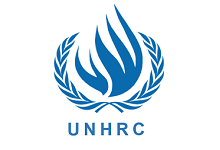Human Rights Council – 32st session
The 32nd session of the Human Rights Council will be held from June 13 – 1 July 2016 at the Palais des Nations, Room XX, Geneva, Switzerland.
The Human Rights Council holds three regular sessions a year, for a total of at least ten weeks. They take place in March (four weeks), June (three weeks) and September (three weeks). If one third of the Member States requests so, the Human Rights Council can decide at any time to hold a special session to address human rights violations and emergencies.
Panel Discussions:
- High-level panel discussion on the occasion of the tenth anniversary of the Human Rights Council: achievements and challenges.
- Panel discussion on the promotion and protection of the right to development (Commemoration of the thirtieth anniversary of the Declaration on the Right to Development).
- Panel discussion on the theme ‘Taking stock of the contribution of parliaments to the work of the Human Rights Council and its universal periodic review, and identifying ways to enhance further that contribution’
- Annual full-day discussion on the human rights of women
- Panel 1: Violence against indigenous women and girls and its root causes
- Panel 2: Women’s rights and the 2030 Agenda for Sustainable Development: delivering on the promise to leave no one behind
- Panel discussion on the possibility of using sport and the Olympic ideal to promote human rights for all, including persons with disabilities
More information about HRC sessions can be found here.
Documents for the 32nd session of the Human Rights Council
Documents, and the Digital Watch coverage of the 31st session of the Human Rights Council
Documents for the 30th session of the Human Rights Council
Report of the Special Rapporteur on the promotion and protection of the right to freedom of opinion and expression at the 32nd Session of Human Rights Council
The Special Rapporteur (SR) on the promotion and protection of the right of opinion and expression, Mr David Kaye, presented his report on the current situation of freedom of expression in the digital era during the 32nd Session of the Human Rights Council.
In particular, he outlined the recent cases of Tajikistan and Japan. In the first case, he raised awareness about the numerous threats and cases of intimidation to journalists in that country, as well as the frequent blocks of information sources on the Internet. In the case of Japan, the free press and online freedom of expression are specifically established (art. 21 of the Constitution), but there are still limitations when it comes to media independence.
The SR particularly underlined the necessity to establish to what extent the private sector and the ICT industry have a responsibility to promote and protect freedom of expression, identifying norms and standards. At the same time, he stressed the problematic trend of governments asking private companies to filter inappropriate content, increasing the risk of online censorship. Moreover, this privately-exercised process of shutting down is neither clear, nor democratic. The representative of the Council of Europe stressed the problem of arbitrariness in the blocking, filtering, and taking down of online content, in the absence of any judicial process.
Concluding his report, the SR defined the steps to work on in the future and the roles of governments and of private companies. In particular, governments must engage in adopting and implementing rules and technical measures to protect freedom of expression and opinion online. They should also refrain from asking private companies to take censorship measures, such as taking down websites. On the other side, the private sector has to develop transparent rules and human rights assessment procedures in order to avoid illegitimate restrictions to freedom of expression.
|full_html

